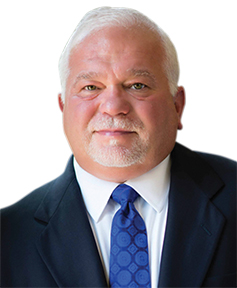As I have mentioned before, I travel a lot. By “a lot,” I mean “a whole lot.” Sometimes the travel is to great locations … sometimes it is not.
With that in mind, I just returned from the American Trucking Associations’ (ATA) Mid-Year Management Session in Hollywood, Florida. This definitely falls into the “great location” category.
For those keeping score at home, Hollywood is just north of Miami. So, the weather is great, and the views are spectacular. In fact, the view from my room overlooked the beach and the ocean. (Of course, this reminded me of the views I enjoy in Oklahoma, except my “waterfront view” in Oklahoma generally consists of a muddy farm pond surrounded by cattle.
Apart from being in a wonderful location, the speakers and subject matter of the ATA conference were great. In fact, one of my favorite things was a discussion between various state association leaders about their victories in tort reform.
Now, before I get on my soapbox, it is important to understand that arguments for tort reform have been around for a million years. For the most part, tort reform is promoted by businesses that have been on the receiving end of massive judgements — think medical malpractice and trucking accidents.
Personal injury cases consist of two separate elements: liability and damages. In order to receive damages, it must first be shown that a defendant is liable. In other words, it must be proven that the defendant owed a duty to the plaintiff and that this duty was somehow breached. For a plaintiff to receive money, they must show not only liability but also the fact that they suffered damages as a result of that breach. Think of the typical car wreck case: In this scenario the plaintiff suffers damage to the car and medical expenses. As a result, the defendant must compensate the plaintiff for damages to the car and medical expenses.
In simple terms, tort reform is a change to the laws surrounding civil litigation in an effort to moderate the costs of excessive litigation. What this means, among other things, is that the ability of plaintiffs’ attorneys to introduce fictitious medical expenses and/or phantom damages at trial is greatly curtailed. It is these types of claims that have led to a climate of lawsuit abuse, increases in insurance costs and additional stress to the supply chain.
In fact, ATA President and CEO Chris Spear recently said, “We mean what we said about lawsuit abuse — enough is enough. When the plaintiff’s bar perverts civil litigation into a profit center to line their pockets, the costs are borne by everyone — not just trucking companies, but consumers, too, in the form of higher insurance rates and higher prices for everyday goods.”
As I mentioned, the tort reform movement has been around since dinosaurs roamed the earth, but it is now beginning to gain momentum. In March, Florida Gov. Ron DeSantis signed House Bill 637 into law. This provides legislation to reform the civil litigation system.
Under this new law, the ability of plaintiff’s lawyers to introduce fictitious or inflated medical bills at trial is limited. Of course, there are certain exceptions to most tort reform laws related to crashes (i.e., drunk driving or reckless behavior) but in general, tort reform legislation makes it much more difficult for a plaintiff to obtain a nuclear verdict. This is important for smaller carriers that would likely go out of business without limitations on the amount juries can award.
For what it is worth, Florida is not alone in passing tort reform legislation. In fact, Iowa, Louisiana, Missouri, Montana, Texas and West Virginia have already enacted tort reform in some manner. While this is a victory in those states, the real victory will come when we get some type of reasonable tort reform that is enacted nationwide to allow something as critical to the supply chain as the trucking industry to operate without fear of excessive — and often irrational — judgments.
Brad Klepper is president of Interstate Trucker Ltd. and is also president of Driver’s Legal Plan, which allows member drivers access to services at discounted rates. For more information, contact him at 800-333-DRIVE (3748) or interstatetrucker.com and driverslegalplan.com.
Brad Klepper is a regular contributor to The Trucker, providing valuable information for drivers and motor carriers. He is also president of Interstate Trucker Ltd., a law firm entirely dedicated to legal defense of the nation’s commercial drivers. Brad is also president of Driver’s Legal Plan, which allows member drivers access to his firm’s services at discounted rates.












National tort reform needed to protect trucking industry against nuclear verdicts
Comment